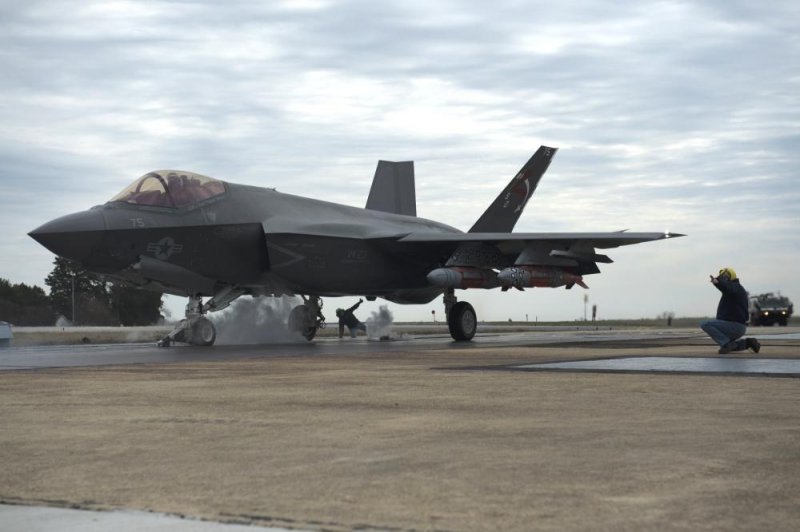Lt. Cmdr. Christopher Tabert, F-35 Pax River Integrated Test Force test pilot, takes CF-5, a Navy F-35 variant, on one of the last system development and design tests with a 2,000 pound external weapons catapult March 19 at Naval Air Station Patuxent River, Md. Photo by Arnel Parker/U.S. Navy
March 26 (UPI) -- United Technologies was awarded a contract from the U.S. Navy for services in support of the F135 propulsion system on F-35 Lightning II fighter jets.
The deal, announced Friday by the Department of Defense, is valued at more than $239.6 million under the terms of an advanced acquisition contract.
The agreement enables Pratt & Whitney Military Engines, a subsidiary of United Technologies, out of East Hartford, Conn., to provide, "long-lead materials, parts, and components for 137 low rate initial Production Lot 12 F135 propulsion systems." according to a Defense Department press release.
The F135 propulsion system is the engine manufactured exclusively for the F-35 Lightning II, a fifth generation, single-engine tactical fighter developed by Lockheed Martin in conjunction with BAE Systems and Northrop Grumman.
Pratt & Whitney Military Engines will support F-35 programs within the U.S. Air Force Navy, Marine Corps, non-U.S. Department of Defense participants and foreign military sales customers, said the Pentagon press release.
Work on the contract will occur in East Hartford, Conn., Indianapolis, Ind., and Bristol, England. The work is expected to be complete in January 2021.
The total amount of the contract will be obligated to United Technologies at time of award from combined funds stemming from Air Force and Marine Corps fiscal 2017 aircraft procurement, non-U.S. Department of Defense participants, and foreign military sales funds.
The obligated funds will not expire at the end of the current fiscal year, the Defense Department said.















